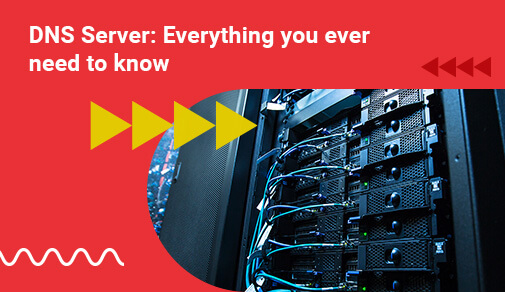DNS server: All you need to know
-
665
-
14 Sep 2021
-
2 minutes

When surfing the internet, have you ever come across the word "domain name"? A domain name is essentially a website address. Before they can create and launch their site at the chosen URL, website owners must first register their domain name with a hosting company. However, because computers do not understand our language, those domain names must be translated into something intelligible and computer-friendly.
What is a DNS server?
Domain names and IP addresses are matched by a DNS server. IP addresses identify each of those websites with a computer-friendly numerical code, such as 123.546.7.8. Domain names are human-friendly web addresses, such as allconnect.com, while IP addresses are computer-friendly numerical codes, such as 123.546.7.8.
DNS stands for Domain Name System. It's also known as a Domain Name System (DNS) or a Domain Name Server (DNS).
What is the purpose of a DNS server?
Every gadget with an internet connection has its own IP address. Name servers, which act as a directory of IP addresses and domain names, are used by DNS servers. These name servers also determine how each domain name is associated with an IP address. Because a single master name server would be too large and unmanageable, this information is stored on a number of distinct name servers.
##BlogVASBanner##
As a result, when a human types in a web URL, a DNS matches it with an IP address that computers can understand. This directs your connection to the right place (the website you're attempting to reach).
Why would you want to alter your DNS settings?
You know how you may use a VPN to change your IP address and gain access to content that is geographically restricted? Changing your DNS covers your location in the same way. A VPN reroutes your connection through a different region, whereas a DNS just informs the server that you are in a different location.
So, why would you want to update your DNS server? Here are a few examples:
- Use the internet to access content that is forbidden in your physical location (like Netflix)
- Improve the speed of your internet connection (sometimes third-party DNS servers are faster than the default)
- Maintain a secure web browsing environment for kids.
- Protect your devices and data with enhanced protection by using third-party DNS servers.






